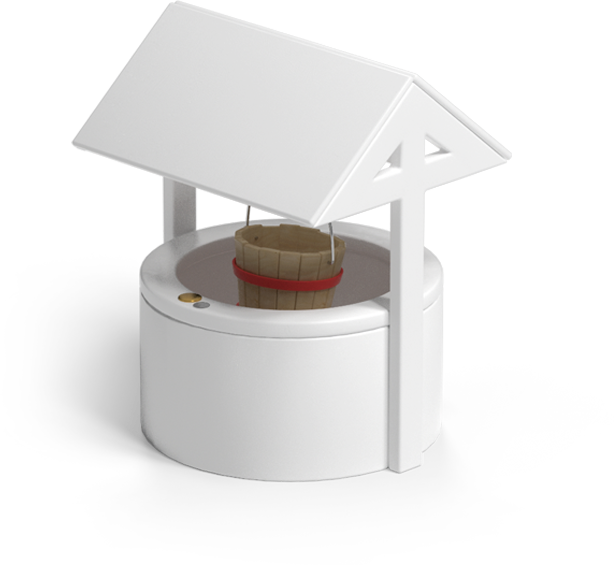Can I Rent Out My House?
Renting out a property is often a conclusion someone would come to if it suits a particular scenario; usually that you have an empty property and would benefit from some extra money. However, it is not quite as simple as making that decision and immediately opening up your home to prospective tenants.
By Jon Howe4/28/21

Can I Rent Out My House?
Renting out a property is often a conclusion someone would come to if it suits a particular scenario; usually that you have an empty property and would benefit from some extra money. However, it is not quite as simple as making that decision and immediately opening up your home to prospective tenants.
Your desire to rent out the property may be to cover a short term situation or you may see it as a long term solution. But this distinction in what is motivating you is important in how you approach the idea of renting out your property. And in addition to that, there are a number of legal and practical factors you need to consider before making the move to rent out your property, and this is what we will be looking at here.
Why would you want to rent out your house?
Everybody has different personal circumstances in terms of their career, their families and their financial situation, and these can all be a factor in why we would want to rent out our home. Primarily, it is not necessarily because we want to buy another home, and this is why the short term and long term factor becomes important. So what are the most common reasons why someone would want to rent out their home?
- You need to raise finances: This can be for any manner of reasons, but because you are willing and able to give up your own home to raise these finances, this usually means you are needing a deposit on a new home, or need the money for refurbishing a new home. Alternatively, if you have other temporary living arrangements, you may need to raise the money for other reasons, such as a relative who needs an important operation, or just needs help with general debt.
- You need to move house but can’t sell: A house sale can often be dependent on moving quickly, and it may be the case that your seller wants to complete the sale before you are able to sell your own house, or maybe before you have even put it up for sale. You can therefore move out of your home and rent it out, in order to complete the purchase of your new home, as this could save the deal from collapsing. This also gives you some breathing space if your old house doesn’t sell, as you will at least have income coming in, but the tenant will need to be aware that you are planning to sell the property and they will have to agree to the tenancy on that basis.
- You are moving in with a partner: This is a very common scenario where both new partners in a relationship have homes and one decides to sell to move in with the other. Renting a property out can be a bridging arrangement whilst the property sells, or it could be a way of earning money whilst you test the water on the relationship and establish whether you can live together long term. Another common scenario is that the mortgage on the property is subject to fixed rate interest or you are in a fixed charging period, so it doesn’t make sense, or it is not possible, to sell the property yet, but you can still move out and rent it to a tenant.
- Working or moving abroad: Work sometimes takes us abroad and often for a fixed period. So if you have a 12-month contract abroad it makes perfect sense to rent out your property. If you have an open contract with no fixed term, this can still make sense, if you want to cover your bets and keep a property in the UK in case you decide to return. Moving abroad may also be a decision to take in retirement, and you may be fortunate enough to be able to retain a property in the UK. Alternatively, renting the property out may cover the costs of temporarily renting a property in your new country of residence, ie. whilst you buy a permanent residence.
- Caring for a family member: It is common for a person to move in with a family member to care for them. Often this will be a child moving in with their elderly relative or a sick relative of any age. Caring for them in their own home is much easier from a practical point of view, and of course much cheaper, but it also opens up the opportunity to rent out your property for a period of time.
- Armed forces relocation: In the armed forces you can be redeployed elsewhere at short notice and on a temporary basis. Therefore it is common in this scenario to rent out your current property to cover this period.
- Security: It is possible that your justification for renting a property out is not simply financial. You may have any of the above reasons for the property being empty, and you want to rent it out primarily so that it is occupied and looked after. This retains the property in a good state and prevents a security issue and it being broken into and potentially vandalised. The rental income may be a secondary benefit to this arrangement.
Most of these scenarios relate to a situation where you are renting the entire property out, but that might not be the case. You could just rent a bedroom out to help a friend out or as a separate let to the rest of your property. This is a handy way to earn some extra money, but it is still subject to some strict rules and regulations which we will look at shortly.
Yes I can rent my house out, but does that mean I should?
You might find that your personal circumstances suggest it makes sense to live elsewhere and retain your current property for a period of time to rent out, but that doesn’t automatically mean it is the best thing to do.
Being a landlord is not just a golden ticket to untold riches, and whatever income you do make doesn’t come easy. There are a number of obstacles to being a landlord which you need to consider and weigh up to see if the balance works in favour of one decision or the other.
- Mortgage: The biggest factor is relating to your mortgage, and principally, you can’t rent out a property and retain it on a standard residential mortgage. You need to convert the mortgage to a buy-to-let mortgage if your arrangement is planned to be long term, or you need to apply for a ‘consent to let’ if the plan to rent your property out is only a short term one. We will look at this in detail in a later section specifically on ‘consent to let’, but the major factor is that mortgage rates on a residential mortgage are usually much less than on a buy-to-let mortgage, so you are facing extra costs immediately if you choose to rent a property out long term.
- Self-manage or letting agent? There is a lot of work involved in being a landlord in terms of finding tenants, maintaining the property as liveable and managing the tenancies, so many people find employing a letting agent to run the property is much easier. This frees up your time considerably and removes a lot of hassle, but of course there is a cost to using a letting agent, which will take a percentage of your monthly rental income.
- Repairs and maintenance: Keeping the property in a good state of repair can cost a lot of money. You need to market the property to a certain type of tenant in order to find these tenants, and with that comes certain expectations. So you may need to spend money to upgrade bathrooms or kitchens or just to redecorate, or to provide new furniture. You also have health and safety responsibilities as a landlord, such as needing a gas safety certificate for a boiler, and functioning smoke alarms on all floors. You may even need to rewire the property if it is quite old. So be prepared for these type of costs.
- Tax: You will need to register with HMRC and pay income tax on your rental income.
- Insurance: You will need to change your insurance policies on the property to reflect the change in nature from residential home to a rented property.
- Legal fees: There will be legal fees relating to the preparing of contracts, which you will need to undertake to ensure your tenants have legally binding agreements. This is as much to cover you as a landlord as it is to cover the tenants.
- Stamp Duty: As of April 2016 the Government has introduced a 3% surcharge on stamp duty for people who own a second property. If this situation applies to you then you will face extra charges as a landlord renting out their first property and now owning a second property.
Can I rent out my house with a normal residential mortgage?
Unless you are already renting a property – in which case of course you won’t be able to sub-let it out to another tenant – then you will probably have a standard residential mortgage on the property you want to rent out. Most residential mortgages include a clause by which you cannot rent the property out to another tenant, this includes even renting one room out to a friend, as this will constitute mortgage fraud. These clauses will usually include big charges if they are violated, although these differ according to the lender. However, as well as charges, you can be blacklisted for violating these terms which can affect your credit rating and therefore your chances of re-mortgaging. In extreme cases a lender may have grounds to repossess the property, or to make you repay the mortgage in full. In short, don’t do it.
However, there are ways that your lender will help you in this situation, if you are upfront about your intentions. After all, this is often a temporary situation to help ease a financial predicament or a relative in trouble, so a lender will often be willing to help.
Whatever length of time you plan to rent a property out, you need to obtain a ‘consent to let’ from your mortgage lender. If your plan is to rent out the property long term and you are in the process of changing your mortgage to a buy-to-let mortgage, then you still need a ‘consent to let’ to cover the interim period.
What is a ‘consent to let’?
A ‘consent to let’ is a formal agreement received from your mortgage lender to deviate from the current terms of your residential mortgage and let out the property on a short term basis, but otherwise under the same terms as the original mortgage. The reference to ‘short term basis’ is important, because a ‘consent to let’ will usually be agreed to be effective for a fixed period, ie. usually between 12 to 24 months. This is a reasonable period for ‘temporary’ circumstances to be resolved, and at the end of the ‘consent’ period the mortgage will revert to a residential mortgage. However, you can apply for an extension to this period, otherwise your lender will want you to revert to a buy-to-let mortgage.
The ‘consent to let’ is quite easy to apply for and is usually arranged quite quickly. However, it will carry certain conditions, and will only be offered if you are up-to-date with your current mortgage repayments. You will also only be granted a ‘consent to let’ if you can show a plan for a legally acceptable tenancy agreement, i.e. an assured shorthold tenancy.
What are the advantages of a ‘consent to let’?
Essentially, a ‘consent to let’ gives you some breathing space and some time and space to resolve short term issues, such as being able to sell a property or care for a sick relative. Effectively, in this kind of scenario, the ‘consent to let’ is assisting you during a changeover period in your personal circumstances, a little like a bridging loan if you are a property developer. However, if that short term situation is looking like turning into a long term one, then you may need to change your mortgage into a buy-to-let mortgage, and you need to show your lender that you are actively doing this.
A ‘consent to let’ also allows you to try letting out your property without undertaking the full commitment of being a landlord. This is useful if you are thinking about a career change to become a buy-to-let landlord or a property developer, but are not convinced it is for you, but also if you are moving abroad or elsewhere and are not sure if it is going to suit you. In this case, a ‘consent to let’ allows you to change your mind and move back to your primary residential property, without having to change your mortgage. And of course a ‘consent to let’ is much easier and quicker to arrange than a new mortgage.
What are the disadvantages of a ‘consent to let’?
Primarily, a ‘consent to let’ does not come free of charge. A lender will usually add an extra % on top of your current mortgage rate, or they may charge you a fixed one-off cost for arranging it. This, in addition to the other costs of renting out your property – as outlined above – may not make it such an attractive proposition.
The mortgage rates on buy-to-let mortgages are usually higher than for a standard residential mortgage, but you should not think that it is a cheaper option to go for a ‘consent to let’ as it is not a long term solution. You will need to revert to a buy-to-let mortgage if you intend to rent your property out long term, and you cannot cover this by extending a ‘consent to let’ as your lender will very quickly be wary of this.
You should also be aware that a lender will only offer you the capability of applying for a ‘consent to let’ if you have been with that lender for a certain amount of time, usually more than a minimum of 12 months. So you cannot use this option to rent your property out until you have lived in it yourself and with a residential mortgage for at least a year, although again, this will differ by lender.
How can I be sure that renting out my house will suit me?
Whilst you might have established that you can rent your house out, and it does suit your personal circumstances, that doesn’t necessarily mean it is the right thing to do. Essentially, you need to balance the likely costs you will face in obtaining a ‘consent to let’ or re-mortgaging your property, and the costs of being a landlord, and balance these against the expected rental income.
Getting a ‘consent to let’ is a relatively small issue when compared to having a long term plan, ie. converting this into a buy-to-let mortgage, living in the property again or selling it. You should be considering one of these scenarios as a potential longer term outcome, and if this is realistic then renting your property out for a period of time, might be a good idea, and will help you in your quest to get there.
Take a look at our other articles




